#nelson longfellow
Explore tagged Tumblr posts
Photo

About this new project: I won’t recreate all sims from “ts2 console” as some of them are pretty bland and I already have 320 sims in my save. On the other hand, some of them are way too cool and diverse to be ignored and I want fun sims to play with! As it’s a 2023 take on a 2000′s game, I will not go as crazy on accessories as the original characters: Betty Buttercup is supposed to wear a dead fox on her shoulders and everybody wears ridiculous hats/sunglasses combos., let’s not do that!
HMS Amore from TS2 Console
TS2 console was a weird game, in my memories everybody was obsessed by woohoo, especially on that dang boat! In my save this household lives in Sulani, I gave them this beautiful lot/yacht made by SpecterCody.
Nelson Longfellow: (A)
“ Famous for his erotic maritime novella "Yardarm", Captain Longfellow has parlayed his acclaim into a lucrative sailing career, piloting Ms. Buttercup's yacht to exotic ports of call. “
Betty Buttercup: (A)
“ Heir to an inexplicably large pink flamingo fortune, Betty desperately wants to marry Nelson so that she may then have a scandalous affair with someone younger. She owns the Amore “
Hector Fromagero: (YA)
“Hector's fantastically handsome features help mask the fact that he smells like a goat. Some claim that Hector is nothing more than a gold digging woohoo maniac. They are right.. “
#ts4#Zx Premades Index#zx premades#zx betty B#zx nelson#zx hecor f#zx ts2 console#betty buttercup#nelson longfellow#hector fromagero#zx photoshoot
57 notes
·
View notes
Text



From the HMS Amore, we have Betty Buttercup, Captain Nelson Longfellow and Hector Fromagero!
Feel free to age up Nelson and/or Betty if you'd like, I have them as regular adults because the adult clothing options had closer matches than I could've done if they were elders.
Download: Betty | Nelson | Hector
14 notes
·
View notes
Text

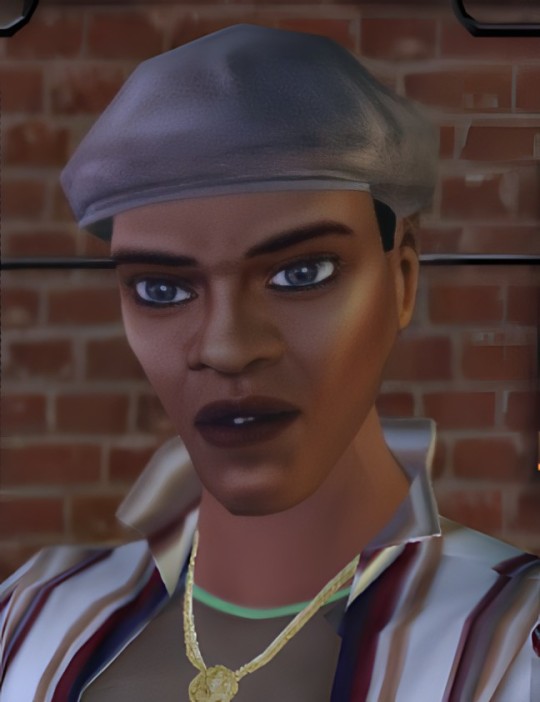



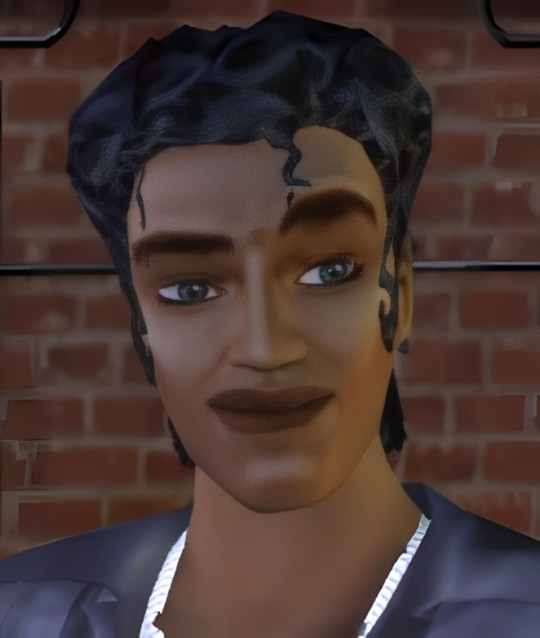


I've decided to continue my series of using a photo editor on the console sims! Next up is all of The Sims 2 console sims!
Featuring:
Felicity Usher & Ossie Madison
Torin Namaste, Farah Moonbiscuit, & Timmy Tool
Hector Fromagero, Betty Buttercup, & Nelson Longfellow
Thank you to @madraynesims for the original headshots that she took of most of these sims.
#sims 2 console#ts2#the sims 2#sims 2#pleasantview#strangetown#melbourne#sims#sims console#ts2c#console
50 notes
·
View notes
Text
With peace on earth good-will to men
read it on AO3 at https://ift.tt/9IKH45r by swise This came to me in a dream. Today is as good a day as any to remind ourselves of some higher truths. Happy Christmas! Title from Christmas Bells by Henry Wadsworth Longfellow Words: 3106, Chapters: 1/1, Language: English Fandoms: Heartstopper (TV), Heartstopper (Webcomic) Rating: Teen And Up Audiences Warnings: No Archive Warnings Apply Categories: M/M Characters: Nicholas "Nick" Nelson, Charles "Charlie" Spring (Heartstopper), Jane Spring, Sarah Nelson Relationships: Nicholas "Nick" Nelson/Charles "Charlie" Spring Additional Tags: Crack, Crack Treated Seriously, Fluff, Christmas Fluff, Feelz, Melancholy, Meet-Cute, Established Relationship, Established Nicholas "Nick" Nelson/Charles "Charlie" Spring, Unreliable Narrator, POV Charles "Charlie" Spring (Heartstopper), but Charlie is not the unreliable narrator, me I am the unreliable narrator, Alternate Universe - Canon Divergence, Time Shenanigans, Unconventional Format, unhealthy dependence on emojis to convey meaning, Nicholas "Nick" Nelson has Strong Rugby Arms, Nicholas "Nick" Nelson has Golden Retriever Energy, Charles "Charlie" Spring (Heartstopper) Needs a Hug, Charlie Spring is a menace read it on AO3 at https://ift.tt/9IKH45r
2 notes
·
View notes
Photo






AUGUSTUS NELSON - Fallout 4
Huzzah!!! It is done!! A little series of drawings showing my (male) Sole Survivor entering the commonwealth in 2287.
In this post we see his wife Liberty, his son Shaun, and how he got his scars! In the end, as the general of the minutemen, Gus destroys the Institute, liberating the commonwealth from their tyranny. Having successfully saved him from the now-corrupt Brotherhood of Steel, Augustus and Danse become a couple and live happily together in Sanctuary Hills, living their lives as protectors of the Commonwealth and saviors of synths.
The final image is showing all the friends Gus made along the way :3
This little project was a BEAST to work on, but it was a lot of fun, and I’m very happy with how it turned out!! I hope y’all are too :) I’m definitely not done with Fallout 4. I’ve got a whooooooole alternate universe where Liberty survives instead of Gus, so expect more! ^u^
#fallout 4#my sole survivor#sole survivor#fallout#my art#brotherhood of steel#the institute#kellogg#augustus nelson#liberty nelson#fallout 4 hancock#nick valentine#Robert Joseph MacCready#fallout 4 deacon#codsworth#fallout 4 strong#cait#fallout 4 piper#old longfellow#dogmeat#preston garvey#paladin danse#radstorm#the glowing sea#sanctuary hills#male sole survivor#fallout 4 nate#curie
53 notes
·
View notes
Text
Henry Wadsworth Longfellow - Casas assombradas
"Casas assombradas", um poema de Henry Wadsworth Longfellow
Todas as casas onde homens viveram e partiram São casas mal-assombradas. Pelo aberto portãoAs inofensivas almas, em suas tarefas, pairam, Com pés que quase nenhum ruído produzem no chão. Nós as encontramos na escadaria, no corredor, Pelas passagens através das quais elas vêm e vão,impalpável impressão no ar ao nosso derredor, Sensação de algo em intensa movimentação. Há mais convivas na…

View On WordPress
0 notes
Text
Bibliography of Scholarly Articles and Books
Abbott, Frank, "The Devil Made Me Do It." Popular Spirituality in a Rural Quebec Parish, 1736-1901." Journal of the Canadian Historical Association/Revue de la Société historique du Canada, vol 27, no. 1 (2016): 1-30.
Abbott, Francis A. "The Body or the Soul? Religion and Culture in a Rural Quebec Paris, St-Joseph-de-Beauce, 1736-1901," Simon Fraser University Thesis, Fall 2012.
Anselme Chiasson. Les légendes des Iles de la Madeleine. Éditions des Aboitaux, 1969.
Anselme Chiasson. Le diable Frigolet et 24 autres contes des Iles de la Madeleine. Éditions de l'Acadie. 1991.
Arseneau, Danielle, "Growing Acadian Medicine: From the Acadian Homeland to Nova Scotia Gardens," Dalhousie University. 8 pages.
Arsenault, Georges. La Chandeleur en Acadie. Éditions La Grande Marée Ltée. 2011.
Arsenault, Georges. Contes, légendes et chansons de l'Ile-du-Prince-Édouard. Éditions La Grande Marée Ltée. 2018.
Arsenault, Georges. Noel en Acadie. Éditions La Grande Marée Ltée. 2005.
Arsenault, Georges. La Mi-Carême en Acadie. Éditions La Grande Marée Ltée. 2007.
Benoit Lacroix. Folklore de la mer et religion. Leméac. 1980.
Bergeron, Bertrand. Contes, legendes et recits du Saguenay-Lac-Saint-Jean. Trois Pistoles, 2004.
Bergeron, Florence. A force d'amour: biographie de Florida Gilbert. Société d'histoire du Lac-Saint-Jean. 2008.
Bouchard, Russel. L'exploration du Saguenay par J.-L. Normandin en 1732: Au coeur du Domaine du Roi. Journal original retranscrit, commente et annote. Septentrion, 2002.
Dawson, Nelson-Martin. Fourrures et forets metisserent les Montagnais: Regard sur les sang-meles au Royaume du Saguenay. Septentrion, 2011. 322 pages.
E.I. Robson. A Guide to French Fetes. Methuen & Co. Ltd. 1930.
Gaudet, Colby. "Women and Acadian Popular Religious Culture in Southwestern Nova Scotia, 1795-1820," Vancouver School of Theology, thesis submission, March 2018.
Gaudet, Rose-Delima. “La place de l’Église catholique aux Îles-de-la-Madeleine” Sessions d’études: Société canadienne d’histoire de l’Église catholique 46 (1979): 99-106.
Karst, Amanda. 2010. Conservation Value of the North Ameriacn Boreal Forest from an Ethnobotanical Perspective. Canadian Boreal Initiative, David Suzuki Foundation and Boreal Songbird Initiative; Ottawa, ON; Vancouver, BC; Seattle, WA.
Labelle, Ronald. “Native Witchcraft Beliefs in Acadian, Maritime and Newfoundland Folklore” Ethnologies 30, no. 2 (2008): 137-152.
Lapierre-Otis, Rita. Angèle des Iles: Pour la suite de son monde. Jonquière (Impression à Cap-Saint-Ignace), à compte d’auteur, 1997.
Laurendeau, Geraldine. Inventaire des savoirs et des connaissances des Pekuakamiulnuatsh sur les plantes médicinales, rapport final. Ressources naturelles Canada. Mars 2011.
Lavoie, Kathia, Julie Mollen, Agathe Napess, Georgette Mestokosho et Priscilla Mestokosho. "Innu-Natukuna: La cueillette de plantes médicinales par des membres de la communauté d'Ekuanitshit" Recherches Amérindiennes au Quebec, vol. 45, no. 2-3. (2015).
Madeleine Doyon-Ferland. "Folk Dances in Beauce County," Journal of American Folklore vol. 67 no. 264 (April-June 1954): 137-47; "Carnavals et deguisements traditionnels en Beauce." and "Rites et voisinage chez trois populations rurales canadiennes (Beauce, Dorchester et Charlevoix)" in Coutumes populaires du Canada francais (Quebec: Les Presses de l'Universite Laval, 1972). Found at Library Archives Canada, General Collection F5419 F4 1972.
Maison Saint-Gabriel: Musee et site historique. "Capsule Historique: Croyances populaires et superstitions au Quebec ou côtoyer le merveilleux."
Marius Barbeau. The Tree of Dreams. Oxford University Press. 1955.
Marius Barbeau. Le Saguenay légendaire. Librairie Beauchemin Limitée. 1967.
Nicole Belmont. Mythes et croyances dans l'ancienne France. Flammarion. 1973.
Niemeyer, Mark. "Henry Wadsworth Longfellow's Evangeline: A Tale of Acadie and the Ambiguous Afterlife of the History of the Acadians." Canadian Review of American Studies/Revue canadienne d'etudes americaines vol. 48, no.2, (2018).
Pearl, Jonathan L. "Witchcraft in New France in the Seventeenth Century: The Social Aspect." Historical Reflections/ Reflexions Historiques, vol. 4, no. 2. (Winter 1977): 41-55.
Pierre DesRuisseaux. Dictionnaire des croyances et superstitions. Éditions Triptyche, 1990.
Podruchny, Carolyn. Making the Voyageur World: Travelers and Traders in the North American Fur Trade. Toronto: University of Toronto Press, 2006.
Podruchny, Carolyn, "Werewolves and Windigos: Narratives of Cannibal Monsters in French Canadian Voyageur Oral Tradition," Ethnohistory vol 51 no.4, 2004.
Ransom, Amy J. "The Changing Shape of a Shape-Shifter: The French Canadian "Loup-garou"." Journal of the Fantastic in the Arts, vol. 26, no. 2 (2015): 251-275.
Robinson, James M. The Nag Hammadi Library: The Definitive Translation of the Gnostic Scriptures Complete in One Volume.
Smallman, Shawn. "Spirit Beings, Mental Illness, and Murder: Fur Traders and the Windigo in Canada's Boreal Forest, 1774 to 1935" Ethnohistory vol 57, no. 4 (Fall 2010): 571-596.
Smith, Isobel. "Man into Animal: Lycanthropy in French and French-Canadian Folklore and Literature." Thesis presented to the University of Alberta, Spring 1985.
Tremblay, Marc. "Le cycle de la chasse-galerie: Etude des variantes significatives, de la diffusion et de la structure d'un conte folklorique canadien-francais." These soumise a l'universite Carleton, Janvier 1996.
Victor-Lévy Beaulieu. Les contes québécois du grand-pere Forgeron a son petit-fils Bouscotte. Éditions Trois-Pistoles. 1998.
W. Branch Johnson. Folktales of Brittany. Methuen & Co. 1927.
Wintemberg, W. J. “French Canadian Folk-Tales”, The Journal of American Folklore 17 no. 67 Published by American Folklore Society (Oct.-Dec. 1904): 265-267.
22 notes
·
View notes
Text
LIZ THE MATCHMAKER
November 18, 1949
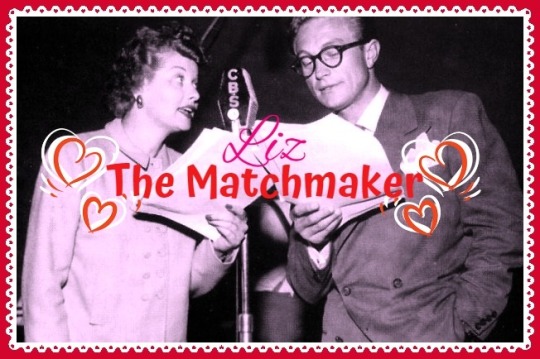
“Liz The Matchmaker” (aka “Katie and Mr. Negley”) is episode #63 of the radio series MY FAVORITE HUSBAND broadcast on November 18, 1949.
Synopsis ~ After dating Mr. Negley the postman for three years, Katie feels that their relationship is not going anywhere, so she enlists Liz's help!
This was the 12th episode of the second season of MY FAVORITE HUSBAND. There were 43 new episodes, with the season ending on June 25, 1950.
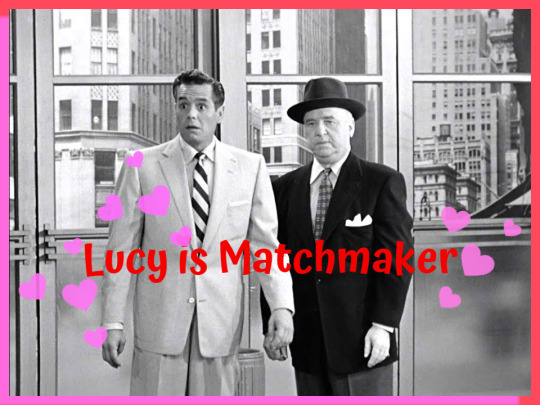
Although similarly titled and themed, this radio episode is not the basis for the “I Love Lucy” episodes “Lucy Plays Cupid” (ILL S1;E15), “Lucy is a Matchmaker” (ILL S2;E27), “The Matchmaker” (ILL S4;E4), or “Lucy, the Matchmaker” (HL S1;E12) in 1968. Safe to say that meddling in the romantic affairs of others was a trait of all of the Lucy characters!
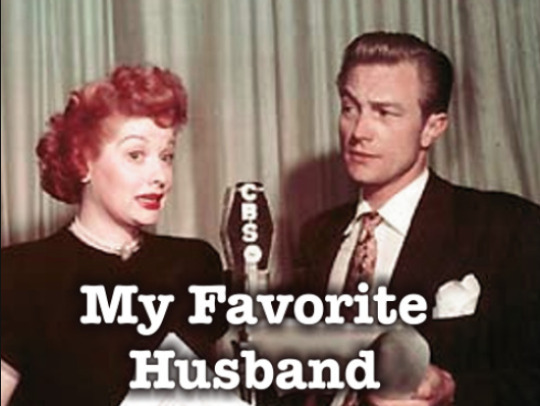
“My Favorite Husband” was based on the novels Mr. and Mrs. Cugat, the Record of a Happy Marriage (1940) and Outside Eden (1945) by Isabel Scott Rorick, which had previously been adapted into the film Are Husbands Necessary? (1942). “My Favorite Husband” was first broadcast as a one-time special on July 5, 1948. Lucille Ball and Lee Bowman played the characters of Liz and George Cugat, and a positive response to this broadcast convinced CBS to launch “My Favorite Husband” as a series. Bowman was not available Richard Denning was cast as George. On January 7, 1949, confusion with bandleader Xavier Cugat prompted a name change to Cooper. On this same episode Jell-O became its sponsor. A total of 124 episodes of the program aired from July 23, 1948 through March 31, 1951. After about ten episodes had been written, writers Fox and Davenport departed and three new writers took over – Bob Carroll, Jr., Madelyn Pugh, and head writer/producer Jess Oppenheimer. In March 1949 Gale Gordon took over the existing role of George’s boss, Rudolph Atterbury, and Bea Benaderet was added as his wife, Iris. CBS brought “My Favorite Husband” to television in 1953, starring Joan Caulfield and Barry Nelson as Liz and George Cooper. The television version ran two-and-a-half seasons, from September 1953 through December 1955, running concurrently with “I Love Lucy.” It was produced live at CBS Television City for most of its run, until switching to film for a truncated third season filmed (ironically) at Desilu and recasting Liz Cooper with Vanessa Brown.
MAIN CAST
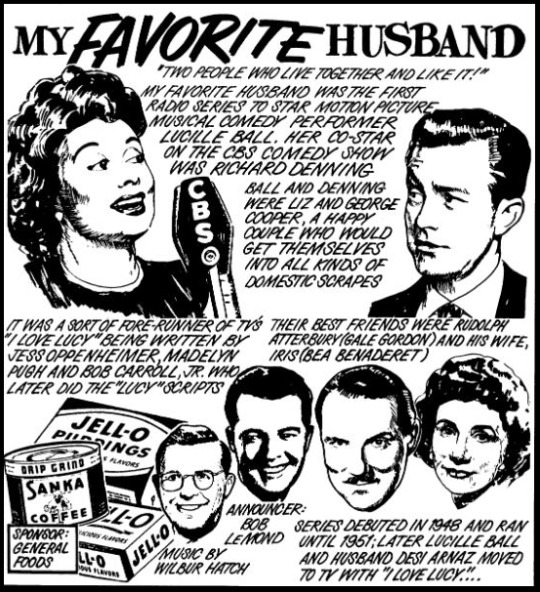
Lucille Ball (Liz Cooper) was born on August 6, 1911 in Jamestown, New York. She began her screen career in 1933 and was known in Hollywood as ‘Queen of the B’s’ due to her many appearances in ‘B’ movies. With Richard Denning, she starred in a radio program titled “My Favorite Husband” which eventually led to the creation of “I Love Lucy,” a television situation comedy in which she co-starred with her real-life husband, Latin bandleader Desi Arnaz. The program was phenomenally successful, allowing the couple to purchase what was once RKO Studios, re-naming it Desilu. When the show ended in 1960 (in an hour-long format known as “The Lucy-Desi Comedy Hour”) so did Lucy and Desi’s marriage. In 1962, hoping to keep Desilu financially solvent, Lucy returned to the sitcom format with “The Lucy Show,” which lasted six seasons. She followed that with a similar sitcom “Here’s Lucy” co-starring with her real-life children, Lucie and Desi Jr., as well as Gale Gordon, who had joined the cast of “The Lucy Show” during season two. Before her death in 1989, Lucy made one more attempt at a sitcom with “Life With Lucy,” also with Gordon.
Richard Denning (George Cooper) was born Louis Albert Heindrich Denninger Jr., in Poughkeepsie, New York. When he was 18 months old, his family moved to Los Angeles. Plans called for him to take over his father’s garment manufacturing business, but he developed an interest in acting. Denning enlisted in the US Navy during World War II. He is best known for his roles in various science fiction and horror films of the 1950s. Although he teamed with Lucille Ball on radio in “My Favorite Husband,” the two never acted together on screen. While “I Love Lucy” was on the air, he was seen on another CBS TV series, “Mr. & Mrs. North.” From 1968 to 1980 he played the Governor on “Hawaii 5-0″, his final role. He died in 1998 at age 84.
Ruth Perrott (Katie, the Maid) was also later seen on “I Love Lucy.” She first played Mrs. Pomerantz, a member of the surprise investigating committee for the Society Matrons League in “Pioneer Women” (ILL S1;E25), as one of the member of the Wednesday Afternoon Fine Arts League in “Lucy and Ethel Buy the Same Dress” (ILL S3;E3), and also played a nurse when “Lucy Goes to the Hospital” (ILL S2;E16). She died in 1996 at the age of 96.
Bob LeMond (Announcer) also served as the announcer for the pilot episode of “I Love Lucy”. When the long-lost pilot was finally discovered in 1990, a few moments of the opening narration were damaged and lost, so LeMond – fifty years later – recreated the narration for the CBS special and subsequent DVD release.
Gale Gordon (Rudolph Atterbury) and Bea Benadaret (Iris Atterbury) do not appear in this episode.
GUEST CAST
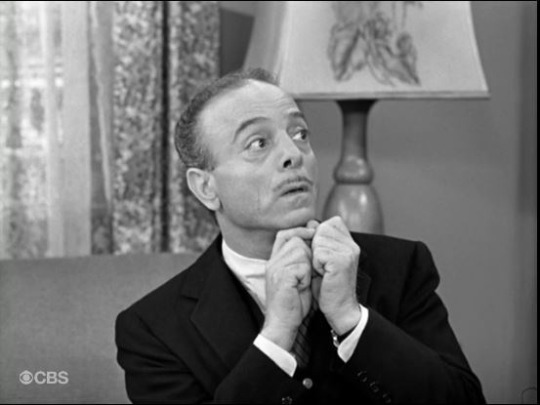
Jay Novello (Mr. Negley, Postman) appeared on “I Love Lucy” as superstitious Mr. Merriweather in “The Seance" (ILL S1;E7), Mario the gondolier in “The Visitor from Italy” (ILL S6;E5), and nervous Mr. Beecher in “The Sublease” (ILL S3;E31). He also appeared on two episodes of “The Lucy Show,” but Novello is probably best remembered for playing Mayor Lugatto on “McHale’s Navy” in 1965.
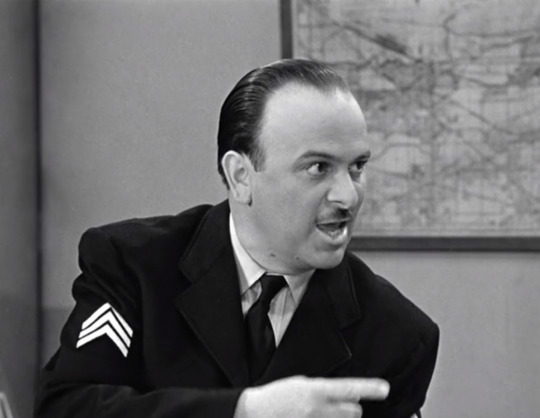
Frank Nelson (Police Officer) was born on May 6, 1911 (three months before Lucille Ball) in Colorado Springs, Colorado. He started working as a radio announcer at the age of 15. He later appeared on such popular radio shows as “The Great Gildersleeve,” “Burns and Allen,” and “Fibber McGee & Molly”. Aside from Lucille Ball, Nelson is perhaps most associated with Jack Benny and was a fifteen-year regular on his radio and television programs. His trademark was playing clerks and other working stiffs, suddenly turning to Benny with a drawn out “Yeeeeeeeeees?” Nelson appeared in 11 episodes of “I Love Lucy”, including three as quiz master Freddy Fillmore, and two as Ralph Ramsey, plus appearance on “The Lucy-Desi Comedy Hour” - making him the only actor to play two different recurring roles on “I Love Lucy.” Nelson returned to the role of the frazzled Train Conductor for an episode of “The Lucy Show” in 1963. This marked his final appearance on a Lucille Ball sitcom.
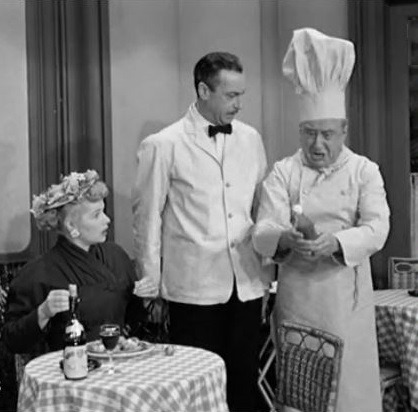
Rolfe Sedan (Malt Shop Waiter) first worked with Lucille Ball in the 1934 film Kid Millions. When Lucy Ricardo ate snails in “Paris at Last” (ILL S5;E18), Sedan played the Chef who was outraged that Lucy wants to put ketchup on his food. He is probably best remembered as Mr. Beasley the mailman on “The George Burns and Gracie Allen Show.”
EPISODE
ANNOUNCER: “As we look in on the Coopers it’s morning and Liz and George are at the breakfast table.”
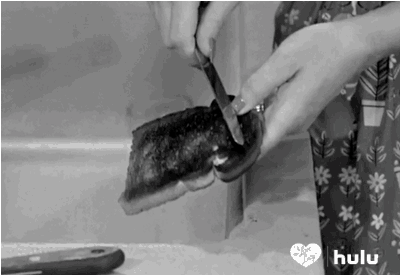
George spits out his eggs and wonders why his breakfast is so badly cooked. Liz says that Katie’s romance with Mr. Negley the mailman is not going well, so she’s distracted. Even the toast is burned!
Liz tells says she wants to help bring the maid and the mailman together but George warns her to stay out of it! Instead, George wants to warn Mr. Negley that Katie is trying to get a “wedlock headlock” on him! George makes Liz promise not to meddle, no matter how difficult it is.
In the kitchen, Katie is crying and singing: “I gotta right to sing the blues. I got a right to moan and cry.”
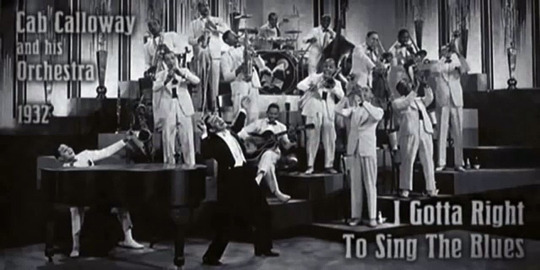
"I Gotta Right to Sing the Blues" is a popular song with music by Harold Arlen and lyrics by Ted Koehler, published in 1932 for the Broadway show Earl Carroll's Vanities (1932) starring Milton Berle. The song became a jazz and blues standard. Popular recordings were by Cab Calloway, Louis Armstrong, and Billie Holliday.
Liz comes up with a loophole about her promise to not get involved in Katie’s romance: she will just listen, while Katie talks. Katie says that she and Mr. Negley go on several dates a week to the drive-in movie. Unfortunately, he drives a motorcycle. They also go to the park, where Mr. Negley plays canasta with the cop on the beat. Mr. Negley lives at the YMCA so she has no hopes of being invited over to dinner. Liz comes up with the idea to take George out to a movie that night, so that Katie and Mr. Negley will have the Cooper living room all to themselves.
Mr. Negley arrives to deliver the morning mail. Katie is too nervous to ask him to come over that evening, so Liz agrees to do it for her.
LIZ: “I thought I was Mr. Anthony, now I’m John Alden.”
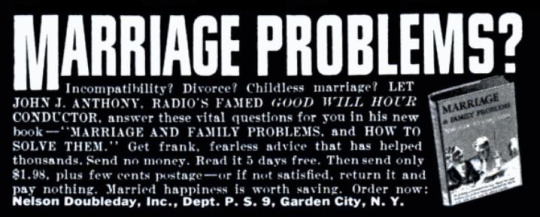
Mr. Anthony (aka John J. Anthony) was the pseudonym of Lester Kroll, who from 1937 to 1953 dispensed marital advice on the radio through “The Good Will Hour”, later renamed “The John J. Anthony Hour.”
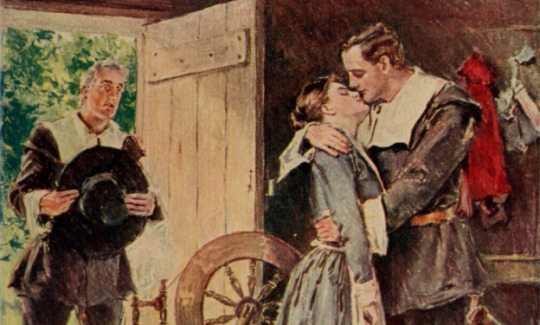
In "The Courtship of Miles Standish" by Henry Wadsworth Longfellow John Alden was asked by his friend, Miles Standish, to act as matchmaker for him with Priscilla Mullins. Priscilla made the classic response "Why don't you speak for yourself, John?"
Mr. Negley finally agrees to the date and merrily goes off singing “Some enchanted evening, you will see a stranger...”
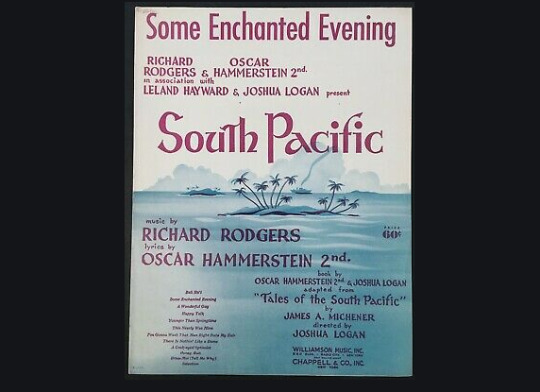
"Some Enchanted Evening" is a show tune from the 1949 Rodgers and Hammerstein musical South Pacific. It has been described as "the single biggest popular hit to come out of any Rodgers and Hammerstein show." Billboard Chart Records for “Some Enchanted Evening” in 1949 alone included Ezio Pinza (#7), Perry Como (#1), Frank Sinatra (#6), and Bing Crosby (#3).
That evening, Liz and George are at the movies. George wants to leave, but she must keep George out till 11:30 and it is only 9:30! Liz pretends to lose a shoe, which George dutifully searches for in the darkened theatre to no avail.
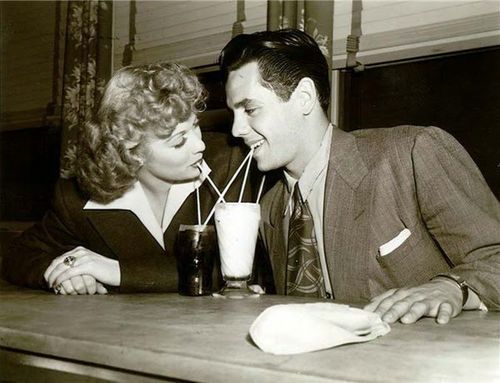
At 10:15, Liz and George are at the malt shop and Liz keeps ordering to kill time, despite getting gradually sick to her stomach. The Malt Shop waiter (Rolfe Sedan) tempts her with an “Eagles Nest”.
WAITER: “It has a base of pound cake and macaroon. On top of that, a scoop of mocha, black walnut, pistachio, peppermint, burnt almond, and tutti-frutti. And then a layer of whipped cream. A layer of chopped nuts. A layer of marshmallows. A layer of cherries. And then you flood the whole thing with hot fudge!”
Liz’s stomach churns!
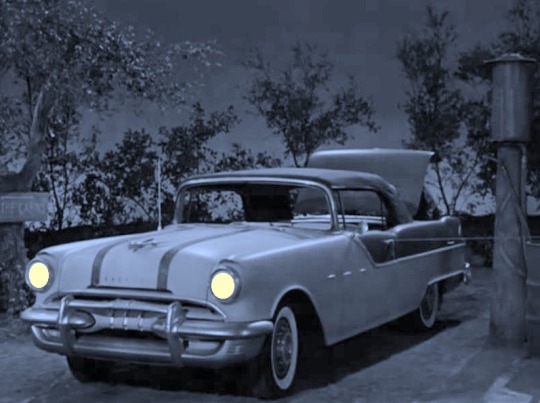
They drive home. It is a quarter to eleven. Liz blurts out that they can’t go in until 11:30. She makes George promise not to mad, and tells him the truth. He breaks his promise. Liz reminds him that in their courtship, it would be blissful to stay in the car an extra half hour with Liz, but that was a long time ago. He tries to kiss her, but logistics interfere.
GEORGE: “That’s funny. I can’t turn around. The steering wheel’s in the way. In the old days the cars were built different.” LIZ: “In the old days, the stomach was built different.”
Liz and George manage a smooch - one that lasts until 12:30!
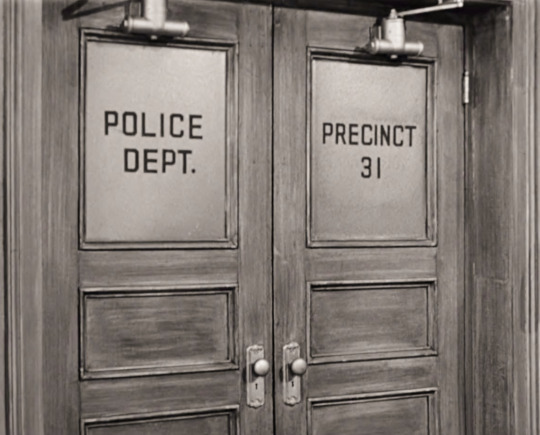
Liz wants to be sure Mr. Negley is gone, so she peers through the living room window. A policeman (Frank Nelson) is watching them and wants to know what they are doing. He doesn’t believe they are the homeowners or that they were in the car smooching, not staking out the place! He hauls them down to the police station!
At 4:30 in the morning, George and Liz finally get home, exhausted from their ordeal. A worried Katie greets them. It turns out something came up and Mr. Negley didn’t come over after all!
LIZ: “Oh, no!!!”
End of Episode
#My Favorite Husband#Matchmaker#Lucille Ball#Richard Denning#Frank Nelson#Ruth Perrott#John Alden#South Pacific#Mr. Anthony#Some Enchanted Evening#I Gotta Right to Sing The Blues#1949#Radio#Rolfe Sedan#Jay Novello#I Love Lucy#Bob LeMond#Desi Arnaz#Lucy
2 notes
·
View notes
Photo

Happy BornDay Paul Lawrence Dunbar
Paul Laurence Dunbar published in such mainstream journals as Century, Lipincott’s Monthly, the Atlantic Monthly, and the Saturday Evening Post. A gifted poet and a precursor to the Harlem Renaissance, Dunbar was read by both blacks and whites in turn-of-the-century America.
Dunbar, the son of two former slaves, was born in Dayton, Ohio, and attended the public schools of that city. He was taught to read by his mother, Matilda Murphy Dunbar, and he absorbed her homespun wisdom as well as the stories told to him by his father, Joshua Dunbar, who had escaped from enslavement in Kentucky and served in the Massachusetts 55th Regiment during the Civil War. Thus, while Paul Laurence Dunbar himself was never enslaved, he was one of the last of a generation to have ongoing contact with those who had been. Dunbar was steeped in the oral tradition during his formative years and he would go on to become a powerful interpreter of the African American folk experience in literature and song; he would also champion the cause of civil rights and higher education for African Americans in essays and poetry that were militant by the standards of his day.
During his years at Dayton's Central High, Dunbar was the school's only student of color, but it was his scholarly performance that distinguished him. He served as editor in chief of the school paper, president of the literary society, and class poet. His poetry grew more sophisticated with his repeated readings of John Keats, William Wordsworth, Samuel Taylor Coleridge, and Robert Burns; later he would add American poets John Greenleaf Whittier, Henry Wadsworth Longfellow, and James Whitcomb Riley to his list of favorites as he searched ardently for his own poetic voice. But it was his reading of Irwin Russell and other writers in the plantation tradition that led him into difficulty as he searched for an authentic poetic diction that would incorporate the voices of his parents and the stories they told.
After graduating from high school in 1891, racial discrimination forced Dunbar to accept a job as an elevator operator in a Dayton hotel. He wrote on the job during slack hours. He became well known as the "elevator boy poet" after James Newton Mathews invited him to read his poetry at the annual meeting of the Western Association of Writers, held in Dayton in 1892.
In 1893 Dunbar published his first volume of poetry, Oak and Ivy, on the press of the Church of the Brethren. That same year he also attended the World's Columbian Exposition, where he sold copies of his book and gained the patronage of Frederick Douglass and other influential African Americans.
In 1895 Dunbar initiate a correspondence with Alice Ruth Moore, a fair-skinned black Creole teacher and writer originally from New Orleans. Three years later he married Alice in secret and over the objections of her friends and family...
...Dunbar published eleven volumes of poetry including Oak and Ivy (1893), Majors and Minors (1895), Lyrics of Lowly Life (1896), Lyrics of the Hearthside (1899), Poems of Cabin and Field (1899), Candle-Lightin' Time (1901), Lyrics of Love and Laughter (1903), When Malindy Sings (1903), Li'l Gal (1904), Howdy, Honey, Howdy (1905), and Lyrics of Sunshine and Shadow (1905). Dunbar’s so-called Complete Poems were published posthumously in 1913. The most complete edition of Dunbar’s poetry, The Collected Poetry of Paul Laurence Dunbar, containing a selection of sixty poems not published in 1913, did not appear until 1994. Dunbar's published fiction includes The Uncalled (1898), Folks from Dixie (1898), The Strength of Gideon and Other Stories (1900), The Fanatics (1901), and The Sport of the Gods(1902), but he remains best known for his poetry.
Much of the controversy surrounding Paul Laurence Dunbar concerns his dialect poetry, wherein some scholars, such as the late Charles T. Davis, felt that Dunbar showed the greatest glimmers of genius. Sterling A. Brown, writing in Negro Poetry and Drama in 1937, asserted that Dunbar was the first American poet to "handle Negro folk life with any degree of fullness" but he also found Dunbar guilty of cruelly "misreading" black history. This points to the basic flaw in Paul Laurence Dunbar’s attempts to represent authentic African American folk language in verse. He was not able to transcend completely the racist plantation tradition made popular by Joel Chandler Harris, Thomas Nelson Page, Irwin Russell, and other white writers who made use of African American folk materials and who showed the "old time Negro" as if he were satisfied serving the master on the antebellum plantation.
See also:
See also:
- loc.gov: Paul Laurence Dunbar: Online Resources
- The Heart of Happy Hollow is a short story collection by Paul Laurence Dunbar that focuses on the experiences of African-Americans after the conclusion of the Civil War.
- Wikipedia: Paul Laurence Dunbar
- Howard University Graduating Class of 1900. Included is Paul Laurence Dunbar
18 notes
·
View notes
Note
How would you describe romanced companions with love songs? (Btw loving the blog
Brought to you courtesy of the guru of romance himself – @saintlyguy who threw in a few extras too!
Ada – Electricity is in my Soule by Steam Powered Giraffe
Cait – Good Thing by Reel Big Fish
Codsworth – Europe’s Skies by Alexander Rybak
Curie – Here Comes a Thought from Steven Universe
Danse – Your Man by Josh Turner
Deacon – Careless Whisper by George Michael
Dogmeat – Let’s Hear it for the Boy by Deniece Williams
Gage – Just What I Needed by The Cars
Hancock – You Got What I Need by Freddie Scott
Kellogg – Last Kiss by J. Frank Wilson & The Cavaliers
MacCready – You and I by Anarbor
Maxson – Eye in the Sky by The Alan Parsons Project
Nate/Nora – Who Loves You by Frankie Valli & The Four Seasons
Nick Valentine – Everybody Loves Somebody by Dean Martin
Old Longfellow – Brandy You’re a Fine Girl by Looking Glass
Piper Wright – Sara Perche ti Amo by Ricchi e Poveri
Preston Garvey – Somebody’s Baby by Jackson Browne
Strong – I will Follow You by Ricky Nelson
X6-88 – Secrets by One Republic
#fallout 4#companions#ada#cait#curie#codsworth#danse#deacon#hancock#gage#porter gage#maccready#kellogg#maxson#elder maxson#old longfellow#dogmeat#nick valentine#piper wright#preston garvey#strong#x6-88#sole survivor#nate#nora
248 notes
·
View notes
Text

National Poetry Month Number 21 - Vona Groarke - Still Life in Marble
You can listen to the podcast version of today’s article on Spotify, ITunes, Anchor, Breaker, or Google Podcasts. Click Here to access links. (https://anchor.fm/steve-spanoudis) Look for the podcast titled National Poetry Month at the Other Pages.
Welcome to National Poetry Month at The Other Pages. My name is Steve Spanoudis and I curate the series each year, with help and contributions from Bob Blair, Kashiana Singh, and (Nelson) Howard Miller. I’m coming to you from Coral Springs, Florida, on the eastern edge of the Everglades.
Today’s selection once again focuses on a poet I should have known about, but did not. Irish poet Vona Groarke was born in Mostrim (population 2,072) in the middle of the country. She received her degrees from Irish universities including Trinity College, Dublin, before coming to the U.S. to teach at Villanova and Wake Forest. She currently teaches at the University of Manchester in the UK. She has published six volumes of poetry, won several prizes and awards for her writing, and is also currently editor of the Poetry Ireland Review.
Today’s poem, Still Life in Marble, is simple, and yet not so simple. It’s a character study, perhaps in the vein of Longfellow’s famous blacksmith, about an Italian stone carver, who works on headstones for the local cemetery. It is a more thoughtful portrait however, far from one-dimensional, with an interplay of thought between the perfect figures he carves, intricate but lifeless, frozen in time, and life’s simple, but transient realities.
She begins with,
The day is hot. So far this morning
his hand has held true, not a stipple,
not a glitch unwarranted. Some days
his right hand contradicts what his left
(his holding, placid, steadfast left) requires.
He works in shade. A man of means has died
and the dying must be marked in marble
carved to trap not grief but its dramatized affect:
a mantilla so fine it weeps its lace; a boot so certain,
it folds the fact of death in every crease.
As he carves exactingly detailed portraits of others in stone, he thinks about his own family, and his own life. The observed details of life are simple, but very sensory in nature: The curl of his wife’s hair, the tilt of his daughter’s chin when singing, rabbit and peaches for dinner. His mind goes back and forth, methodically, between the two worlds he inhabits:
The peach, he thinks, will be ripe and sweet;
the skin rhyming with the curve of the face
he carved today which he knows (as he does)
will be what visitors will want to touch,
so it stays pure white from rubbing
when the rest is smut-clogged grey.
For luck or for prayer. His hand is the first,
on a child so plausible he almost whispers
he’s sorry to be leaving her there.
As he carves one day, he has an irritating stye in one of his eyelids, and, reality-based artist that he is, he includes it in a carving. It’s so small that only he can see it, but he knows it’s there. Life’s small imperfections. The things that tell us that, while we are not perfect like the stone, we are alive and can see and hear and smell and taste the reality of the world around us.
Groarke ends with:
And this is how we live,
by the power of bodies apt to do
whatever we ask of them
to make us real.
From what I see, there is no stye.
Nor can my finger feel it out,
this same finger typing words you
could run your own hand over
and feel nothing
or not much
unless it’s a sore eye
you lift your hand to;
unless it is dust on your tongue.
Her conclusion is that life’s imperfections are not important. The stye is not visible to her, just as her words cannot be felt on the page, though there is truth in them. Unless, she suggests, there is pain in them, throbbing like the stone caver’s eye. Or, she says, like “dust on your tongue.” The dust here is in keeping with the rock dust - imagery of the stone carver, but the metaphor, that, along with all the imagery of death and lifelessness that have gone before, tell you it is not dust on your tongue. It is ashes, and that metaphor is always grief. A thing, like the throbbing eye, can never be ignored.
A shout out to Michael Dechane (https://www.facebook.com/michael.dechane), who mentioned this poem in the intro to one of his podcasts. If you would like to listen to Vona reading some of her poems, The Gallery Press has several (https://www.gallerypress.com/authors/g-to-l/vona-groarke/).
The full text of this poem is online at the Hudson Review (https://hudsonreview.com/2020/04/sundial-metaphors-still-life-in-marble-phrase-book-for-the-subjunctive-lesson-1/#.YH8dEWdKi00); it’s the second poem on the page, so you’ll need to scroll down a little.
If you like this particular poem, I’ll also suggest The Carver by Conrad Aiken.
Once again this is Steve Spanoudis for theotherpages.org.
Thank you for Listening. If you’re enjoying these commentaries, and the poem selections, please share them - either the text versions or the podcasts - on social media.
You can find more at theotherpages.org, or at The Other Pages on Facebook or Tumblr.
#vona#groarke#irishwhiskey#still life in marble#national poetry month#napowrimo#2021#the other pages#theotherpages.org#poem#poems#poetry#poet#poets
0 notes
Text
Best Music Scenes: Portland, Maine - Rolling Stone

In our new series, we look at eight cities where live music has exploded — from legendary hubs like Chicago and Nashville, to rising hot spots like Tulsa, Oklahoma, and Raleigh, North Carolina. The latest is a left-field surprise: Portland, Maine, which is drawing promoters from major cities and ambitious young songwriters.
Every November, more than a dozen top musicians from Portland, Maine, take over the local State Theatre for an ambitious trip back in time: They play a Beatles album in full. This year, it was the White Album; bandleader Spencer Albee sang “Martha My Dear,” backed by precise orchestration, and even invited friends and crew to act out “Revolution 9.” “It’s a love fest,” says Albee, a songwriter in the “lazy disco” band Bell Systems who started the event in a bar 17 years ago. This year, they packed the 1,700-capacity theater for three nights and employed almost 40 people. “I can’t tell you how many people have had their first concert experience with us,” Albee says. “We’ve even had people propose at our shows.”
Kenya Hall Photo: John Doyle
Beatles Night is just one example of how seriously Portland takes its music. “I’ve never lived in a city with this much talent,” says Lauren Wayne, general manager of the company that owns the State. “I get friggin’ emotional about it.” That talent ranges from the funk-soul singer Kenya Hall to folk harmonizers the Ghost of Paul Revere and the Mallett Brothers Band. There’s also psychedelic trailblazer Jeff Beam, and Zach Jones, a part-time Mainer who regularly releases endearingly catchy songs that find a new spin on the Beach Boys and Motown (full disclosure: this writer is from the area). When Wayne moved to Portland in 2001, the scene was “way smaller.” But now, more than a dozen venues have opened in the past decade (not to mention restaurants: Bon Appétit named it the top food scene in the country in 2018). The industry is paying attention — NYC promoters Bowery Presents chose Portland as its first city outside of New York to operate venues in.
Band members of Spencer & The Walrus, warm up backstage in the Green Room of The State Theater, before the first of three shows in Portland, Maine on Nov 29th 2019. Photo: Ryan David Brown
Best Gig With a View
Thompson’s Point was an abandoned railroad yard overlooking Portland harbor that the State Theatre turned into a gorgeous outdoor spot; Maggie Rogers sold it out twice. “It’s the best place to see the sunset in Portland,” says Wayne, adding that artists love playing there for the free lobster rolls and oysters.
Rustic Overtones’ Dave Gutter and Jon Roods Photo: Lauryn Sophia Photogaphy
Hometown Heroes
Rustic Overtones, the ambitious punk-soul crew — led by gravel-voiced frontman Dave Gutter — have a catalog that locals know by heart. The band was signed to Arista in the late Nineties and even recorded with David Bowie (stream the great “Sector Z”). But after two major-label deals fell apart, they broke up (“It’s a comedy of errors,” says Gutter). Rustic reunited in 2007 and got back to what they do best; check out their excellent first album in six years, and the career-spanning Mood Box.
While Gutter says that Portland is full of “studio lab rats, we collaborate and work with a lot of artists at our studio. After we recorded our first project there, New Way Out with 31 musicians, it kind of set the tone for a community of musicians to always hang out there.”
Best Small Clubs
One Longfellow Square is a 185-capacity “listening room” featuring left-field heroes ranging from Marco Benevento and John Scofield to Robyn Hitchcock and Elizabeth Cook. “With Portland being a smaller touring market compared to the bigger cities like Boston and New York, we get a lot of artists that [usually] play bigger rooms,” say Jeff Beam, an artist who books the venue. “I remember Leo Kottke commented on that intimacy the first time he was here, the rawness caught him off-guard a bit.” Also: check out Port City Blue, a vibe-y room that hosts jazz jams that can run for hours. “You can see a show every night of the week,” says Bill O’Neil, a longtime radio DJ and record store owner.
A Secret Country Past
Maine had one national country star: Dick Curless, an eyepatch-wearing singer who had his biggest hit with 1965’s “Tombstone Every Mile.” Willie Nelson affectionately calls Curless’ songs “toe-tappers.” “The Maine country music tradition goes back to before the first Grand Ole Opry broadcast,” says author and rock & roll historian Peter Guralnick. “Many people know Dick Curless, Maine’s one national country music star, but they’re less aware of the tradition in which his talent was forged, and which he came to influence so strongly by the breadth of his talent and the depth of his feeling. Dick started out on Al Hawkes’ country and rockabilly-based Event label, in Westbrook, Maine, just outside of Portland. In fact, Dick was the start of the label, which also featured the great jazz guitarist Lenny Breau, still in his teens, in a country and rockabilly vein. All over the country there are pockets of talent and creativity like this — but Maine, home to so many Acadians who never made it further south, is second to none.”
Portland is also famous for a show that didn’t happen there. Elvis Presley was supposed to play the Cumberland County Civic Center on August 17, but he died the day he was supposed to travel to Portland for the show. “I actually had his guitar player James Burton lined up for an interview the day he died,” says Bill O’Neil. Elvis had played Augusta several months earlier: “We went to the airport and Colonel Parker is sitting there with his cigar, we talked for an hour and a half about Eddy Arnold and Hank Snow and all these other people he previously worked with,” says O’Neil. “I actually got an Elvis album autographed by the Colonel. That might be rarer than an autograph of Elvis!”
Beatles Night at the State Theatre. Photo by John Doyle
Best After-Show Hang
Portland’s Old Port is full of exciting places to drink, like Novare Res, which has a 300-beer menu. For real local flavor, head to Howie’s Pub, a low-key neighborhood bar with darts and jalapeño poppers. “It’s not a pretentious bar,” says O’Neil. “You have a lot of your good local beers available, as well as your PBRs and your $2 Labatt Blues during the hockey games. You’re not necessarily buying the signature cocktail.”
This content was originally published here.
0 notes
Text
The Catherine Auchincloss House - 123 East 69th Street
In 1872 ubiquitous developer Christopher Keyes began construction on a row of 11 20-foot wide brownstone-fronted homes on East 69th Street, between Park and Lexington Avenues. Designed by the equally-prolific John Sexton, they were completed in 1873.
On April 14, 1903 the New-York Tribune reported the Catherine Agnew would be married to Edgar Stirling Auchincloss that afternoon in the mansion of the bride's family at No. 23 West 39th Street. Catherine was the daughter of Andrew G. Agnew and the former Mary Hervey Bliss. Exactly one year later, on April 15, 1904 Agnew purchased No. 123 East 69th Street. And then the following year, in July, he transferred title to his daughter.
The reason that her parents' wedding gift was belated was most likely due to an updating of the now-outdated Victorian. In 1904 Agnew had hired S. Edson Gage to make alterations. Period photographs reveal a remodeled facade--a somewhat curious take on Spanish Revival.
Edgar Auchincloss was a wealthy importer. He had graduated from Yale University in 1896 and was was a member of some of Manhattan's most exclusive clubs, including the University, Downtown and Racquet Clubs. At a time when only the wealthiest owned motorcars, he was a member of the Automobile Club of America. The Auchinclosses had four children--Edgar, Jr., Mary Bliss, Elizabeth Ellen and Katrina.
The twisted wrought iron balusters of the sinuous staircase and the lighting fixture carried on the Spanish motif. photo by Samuel H. Gottscho from the collection of the Museum of the City of New York
The same year that Edgar and Catherine moved into the remodeled house, they acquired a 400-acre country estate near Darien, Connecticut. Its name, Keewaydin, was taken from Longfellow's "The Song of Hiawatha."
On May 4, 1910 Edgar Auchincloss died in the 69th Street house at the age of just 35. While he left about a quarter of a million dollars to relatives, Catherine received the bulk of the estate. The New-York Tribune remarked "At her death the estate is to go to the testator's three daughters and one son" and added that the estate's executors "are empowered at any time to provide a fund of $25,000 for the son to use should he desire to embark in business, or a like sum, should he desire to enter into serious study preparatory to taking up a profession."
In a move that may have shocked society, two days after her husband's death, Catherine purchased the house next door, at No. 121, spending more than a million and a half in today's dollars on the property. It may have been, however, a reaction to being suddenly alone that prompted the purchase. After having the architectural firm of R. H. Robertson & Sons make "extensive alterations and additions" to the home, she sold it to her brother, George Bliss Agnew.
The alterations to No. 121 were remarkable. Seen at far right, No. 123 boasted a Spanish Renaissance entrance, tiled roof and dramatic balcony above the areaway. photograph by Wurts Bros., from the collection of the��Museum of the City of New York
The closeness of the siblings was evidenced five years later when, on the same day, September 17, 1915, architect W. I. Morris filed plans for interior renovations to both houses. They were identical in scope, "extend stairs and bedrooms," at a cost of $3,000 each. The young widow never remarried. She instead busied herself with charity work, most notably the Association for the Aid of Crippled Children. During a its annual meeting in the 69th Street house on March 2, 1926, she was re-elected its president. For decades she would be highly involved in her pet philanthropy, often hosting meetings, teas and receptions in the home. In 1930 Catherine commissioned architect William F. Dominick to give the house a noticeable face lift. His plans, filed on December 11, involved removing the stoop and areaway, remodeling the first and second story facade, and replacing the tiling of the roof and shed dormer with copper cladding.
Dominick's remodeling of the lower floors toned down the former Spanish Renaissance elements.
It was a busy time for Catherine. Twelve days later the engagement of Edgar, Jr. to Patty Milburn was announced. One by one Catherine's children married and left East 69th Street. Mary was married to Nelson Lawrence Page on November 16, 1933; and Katrina's engagement to Royal Elting Mygatt was announced on July 9, 1937. That wedding took place less than a month later at Keewaydin. Elizabeth's wedding three years later in June also was celebrated in the Connecticut home. Rather surprisingly, The New York Times noted on June 9, 1940, "No previous announcement of the engagement had been been made."
Catherine's library was decidedly English in design. photo by Samuel H. Gottscho from the collection of the Museum of the City of New York
At the time of Elizabeth's marriage Catherine had five live-in servants at No. 123--a cook, two maids and two "waiters," (the more polished maids who served, for instance, Catherine's teas, receptions and luncheons). An example of the regular teas that would have kept those women busy was the tea hosted by Catherine and Elizabeth on April 7, 1945 for the trustees of the Child Education Foundation. It was emblematic of the types of entertainments Catherine held--almost never merely social, but with an altruistic purpose. On May 16, 1950 The New York Times reported that Catherine had sold the house she had occupied for nearly half a century. Two years later, while still a single-family home, a doctor's office was installed in the first floor. By the early 2000's the mansion was owned by, Zack Hapton Bacon III, a partner in the multibillion-dollar hedge fund Moore Capital Management; and fiancé of Diandra Douglas (former wife of actor Michael Douglas). When he listed the property in 2005 for $10.75 million, it was described as having "six bedrooms, eight wood-burning fireplaces, a wood-paneled library and a terrace topping the fourth floor." There were also an elevator, indoor waterfall in the entrance hall, and a gym with sauna. Bacon changed his mind, however, and took the property off the market. Twice remodeled, Catherine Auchincloss's stately home is an integral part of the amazing architectural fabric of the East 69th Street block.
photographs by the author
Source: http://daytoninmanhattan.blogspot.com/2018/11/the-catherine-auchincloss-house-123.html

1 note
·
View note
Text
Quotes for Monday June 12,2017
Abilty quotes Ability hits the mark where presumption overshoots and diffidence falls short.--John Henry Newman Ability is of little account without opportunity.--Napoleon Bonaparte Ability is what you're capable of doing. Motivation determines what you do. Attitude determines how well you do it.--Lou Holtz Ability may get you to the top, but it takes character to keep you there.–-John Wooden Ability without honor is useless.--Marcus Tullius Cicero -- Blessings quotes Neil A. Maxwell We should certainly count our blessings, but we should also make our blessings count. Irish Proverb Count your joys instead of your woes; count your friends instead of your foes. Willie Nelson When I started counting my blessings, my whole life turned around. C.S. Lewis When we lose one blessing, another is often, most unexpectedly, given in its place. William A. Ward Change, like sunshine, can be a friend or a foe, a blessing or a curse, a dawn or a dusk. Robert H. Schuller Eve+ry burden is a blessing. Peter Marshall God will not permit any troubles to come upon us, unless He has a specific plan by which great blessing can come out of the difficulty. -- Christianity quotes If you see your brother in need, it doesn’t matter if you already gave somewhere else. You should be open to the idea of God using you to meet your brother’s unexpected need. Andy Stanley, from Fields of Gold Re+member, our God is able to do far more than we can ever dare to ask or even dream of - infinitely beyond our highest prayers, desires, thoughts, or hopes. Brian Steenhoek, from Straight From God God calls us to live in His kingdom. The Father does not seek opportunity to live in our kingdoms. David Timms, from Living the Lord's Prayer No matter what, no matter when, God's love for you is unconditional. Catherine Pulsifer -- Joy quotes Margaret Bonnano It is only possible to live happily ever after on a day to day basis. Booker T. Washington I think I began learning long ago that those who are happiest are those who do the most for others. Bertrand Russell A happy life must be to a great extent a quiet life, for it is only in an atmosphere of quiet that true joy can live. Pierre Coneille Real joy comes not from ease or riches or from the praise of men, but from doing something worthwhile. John W. Gardner True happiness involves the full use of one's power and talents. Will Schultz Joy comes from using your potential. -- Journey quotes journey of a thousand miles begins with a single step. Journey Quote by Lao Tzu Time is a companion that goes with us on a journey. It reminds us to cherish each moment, because it will never come again. What we leave behind is not as important as how we have lived. Journey Quote by Jean Luc Picard Success is a journey, not a destination. The doing is often more important than the outcome. Quotes on Journey-Quote by Arthur Ashe The fastest way to lose hope for the future is to concentrate on the difficulties that the journey of life brings. While the motivation to achieve only lies on focusing on the endless possibilities that lie ahead in the future. Quote by Edmond Mbiaka bless not only the road but the bumps on the road. They are all part of the higher journey. Quotes on Journey-Quote by Julia Cameron What people forget is a journey to nowhere starts with a single step, too. Journey Quotes-Quote by Chuck Palahniuk -- Perservance quotes The people who are playing it totally safe are never going to have either the fun or the reward of the people who decide to take some risk, stick out, do it differently.--John F. Akers New! as of 04/01/17 Permanence, perseverance and persistence in spite of all obstacles, discouragement, and impossibilities: It is this, that in all things distinguishes the strong soul from the weak.--Thomas Carlyle Perseverance alone does not assure success. No amount of stalking will lead to game in a field that has none.--I Ching Perseverance and audacity generally win.--Dorothee DeLuzy Perseverance is a great element of success. If you only knock long enough and loud enough at the gate, you are sure to wake up somebody.--Henry W. Longfellow
#blessings bible verses#ability quotes#Christianity quotes#joy quotes#journey quotes#perseverance quotes
1 note
·
View note
Text
I was tagged by @parkersrevenge
Relationship status: lol
Favourite colour: blue - the darker the better
Lipstick or chapstick: chapstick, always
Last song I listened to: White and Nerdy
Last movie I watched: Fried Green Tomatoes
Top 3 TV shows: currently it's Elementary, Black Sails, and the Musketeers
Top 3 characters: ahhh there's too many, okay umm Idgie Threadgoode, Athos, and Stephen Maturin
Top 3 ships: Sumhowe (it counts), Aubrey/Maturin, and Raffles/Bunny
Books I’m currently reading: oh boy, here we go. Herman Melville, W.H. Auden: The Life of a Poet, Collected Short Stories of Edgar Allan Poe, The Triumph of the Scarlet Pimpernel, The Vile Village, Leaves of Grass, Three Saints and a Sinner, The Far Side of the World, Nelson, and a collection of poetry by Henry Longfellow.
I’ll be boring and tag anyone who wants to participate
#about me#thanks for the tag :)#I really need to work on finishing one book before starting another#pffffft
3 notes
·
View notes
Text
Cities Quotes
Official Website: Cities Quotes
(adsbygoogle = window.adsbygoogle || []).push();
• A city is a place where there is no need to wait for next week to get the answer to a question, to taste the food of any country, to find new voices to listen to and familiar ones to listen to again. – Margaret Mead • A city must be a place where groups of women and men are seeking and developing the highest things they know. – Margaret Mead • A great city is not to be confounded with a populous one. – Aristotle • A great city is that which has the greatest men and women. – Walt Whitman • A great city, whose image dwells in the memory of man, is the type of some great idea. Rome represents conquest; Faith hovers over the towers of Jerusalem; and Athens embodies the pre-eminent quality of the antique world, Art. – Benjamin Disraeli • A large city cannot be experientially known; its life is too manifold for any individual to be able to participate in it. – Aldous Huxley • A portrait of the young Charlie Parker with a degree of vivid detail never before approached. . . [Kansas City Lightning is] a deft, virtuosic panorama of early jazz. . . This is a mind-opening, and mind-filling, book. – Tom Piazza • A suburb is an attempt to get out of reach of the city without having the city be out of reach. – Mason Cooley • A tranquil city of good laws, fine architecture, and clean streets is like a classroom of obedient dullards, or a field of gelded bulls – whereas a city of anarchy is a city of promise. – Mark Helprin • A wonderful fact to reflect upon, that every human creature is constituted to be that profound secret and mystery to every other. A solemn consideration, when I enter a great city by night, that every one of those darkly clustered houses encloses its own secret; that every room in every one of them encloses its own secret; that every beating heart in the hundreds of thousands of breasts there, is, in some of its imaginings, a secret to the heart nearest it! – Charles Dickens • All cities are mad: but the madness is gallant. All cities are beautiful: but the beauty is grim. – Christopher Morley • All inquiry into antiquity, all curiosity respecting the Pyramids, the excavated cities, Stonehenge, the Ohio Circles, Mexico, Memphis,–is the desire to do away this wild, savage, and preposterous There and Then, and introduce in its place the Here and Now. – Ralph Waldo Emerson • All things atrocious and shameless flock from all parts to Rome. – Tacitus • America is a nation with no truly national city, no Paris, no Rome, no London, no city which is at once the social center, the political capital, and the financial hub. – C. Wright Mills • And one by one the nights between our separated cities are joined to the night that unites us. – Pablo Neruda • Any city, however small, is in fact divided into two, one the city of the poor, the other of the rich; these are at war with one another. – Plato • As a remedy to life in society I would suggest the big city. Nowadays, it is the only desert within our means. – Albert Camus • As I criss-cross the city hurrying, I feel always the unchanging cold beneath the pavement. – Mason Cooley • As our boys and men are all expecting to be Presidents, so our girls and women must all hold themselves in readiness to preside inthe White House; and in no city in the world can honest industry be more at a discount than in this capital of the government of the people. – Jane Swisshelm
jQuery(document).ready(function($) var data = action: 'polyxgo_products_search', type: 'Product', keywords: 'Cit', orderby: 'rand', order: 'DESC', template: '1', limit: '68', columns: '4', viewall:'Shop All', ; jQuery.post(spyr_params.ajaxurl,data, function(response) var obj = jQuery.parseJSON(response); jQuery('#thelovesof_cit').html(obj); jQuery('#thelovesof_cit img.swiper-lazy:not(.swiper-lazy-loaded)' ).each(function () var img = jQuery(this); img.attr("src",img.data('src')); img.addClass( 'swiper-lazy-loaded' ); img.removeAttr('data-src'); ); ); ); • Buffalo is one of America’s great designed cities. The interweaving of great architecture, landscape architecture and important historic sites makes Buffalo a must see destination for preservationists, designers, history buffs, and anyone wishing to see an inspiring example of American design. – Richard Moe • But look what we have built … This is not the rebuilding of cities. This is the sacking of cities. – Jane Jacobs • But look what we have built low-income projects that become worse centers of delinquency, vandalism and general social hopelessness than the slums they were supposed to replace. Cultural centers that are unable to support a good bookstore. Civic centers that are avoided by everyone but bums. Promenades that go from no place to nowhere and have no promenaders. Expressways that eviscerate great cities. This is not the rebuilding of cities. This is the sacking of cities. – Jane Jacobs • Chicago is an October sort of city even in spring. – Nelson Algren • Chicago is not the most corrupt American city. It’s the most theatrically corrupt. – Studs Terkel • Chicago is the great American city, New York is one of the capitals of the world, and Los Angeles is a constellation of plastic; San Francisco is a lady – Norman Mailer • Chicago is unique. It is the only completely corrupt city in America. – Charles Edward Merriam • Chicago seems a big city instead of merely a large place. – A. J. Liebling • Chicago sounds rough to the maker of verse. One comfort we have – Cincinnati sounds worse. – Oliver Wendell Holmes Sr. • Cities are 2% of the earths crust, but they are 50% of the worlds population. – Carlo Ratti • Cities are distinguished by the catastrophic forms they presuppose and which are a vital part of their essential charm. New York is King Kong, or the blackout, or vertical bombardment: Towering Inferno. Los Angeles is the horizontal fault, California breaking off and sliding into the Pacific: Earthquake. – Jean Baudrillard • Cities are obvious metaphors for life. We call roads arteries and so forth. – Geoffrey West • Cities are the abyss of the human species. – Jean-Jacques Rousseau • Cities force growth and make people talkative and entertaining, but they also make them artificial. – Ralph Waldo Emerson • Cities give us collision. ‘Tis said, London and New York take the nonsense out of a man. – Ralph Waldo Emerson • Cities have to realize that whatever the federal government is going to do, its not going to be enough. And cities that proactively take control of their own quality of life initiatives are going to be the cities that ultimately attract the highly talented young people and create the jobs. – Mick Cornett • Cities tolerate crazy people. Companies don’t. – Geoffrey West • Cities, like cats, will reveal themselves at night. – Rupert Brooke • City and country — each has its own beauty and its own pain. Some of the smallness of small towns — cattiness, everybody knowing everybody’s business — that can be challenging. And cities can be challenging, because no one can connect except electronically. – William P. Young • City life is millions of people being lonesome together. – Henry David Thoreau • City of prose and fantasy, of capitalist automation, its streets a triumph of cubism, its moral philosophy that of the dollar. New York impressed me tremendously because, more than any other city, it is the fullest expression of our modern age. – Leon Trotsky • City of rest! – as it seems to our modern senses, – how is it possible that so busy, so pitiless and covetous a life as history shows us, should have gone to the making and the fashioning of Venice! – Mary Augusta Ward • City wits, country humorists. – Mason Cooley • Dinocrates did not leave the king, but followed him into Egypt. There Alexander, observing a harbor rendered safe by nature, an excellent center for trade, cornfields throughout all Egypt, and the great usefulness of the mighty river Nile, ordered him to build the city of Alexandria, named after the king. This was how Dinocrates, recommended only by his good looks and dignified carriage, came to be so famous. – Marcus Vitruvius Pollio • During my eleven years as a New York City public school teacher, I saw firsthand the impact that poverty has on the classroom. In low-income neighborhoods like Sunset Park, where I taught, students as young as five years old enter school affected by the stresses often created by poverty: domestic violence, drug abuse, gang activity. – Sal Albanese • Even cities have their graves! – Henry Wadsworth Longfellow • Eventually, I think Chicago will be the most beautiful great city left in the world. – Frank Lloyd Wright • Every city has a sex and an age which have nothing to do with demography. Rome is feminine. So is Odessa. London is a teenager, an urchin, and, in this, hasn’t changed since the time of Dickens. Paris, I believe, is a man in his twenties in love with an older woman. – John Berger • Every city is a living body. – Saint Augustine • Everything is real, except Beika City – Gosho Aoyama • Fields and trees are not willing to teach me anything; but this can be effected by men residing in the city. – Plato • First in violence, deepest in dirt, lawless, unlovely, ill-smelling, irreverent, new; an overgrown gawk of a – village, the “tough” among cities, a spectacle for the nation. – Lincoln Steffens • Great Homer’s birthplace seven rival cities claim, Too mighty such monopoly of Fame. – Thomas Seward • He [Caesar Augustus] found a city built of brick; he left it built of marble. [Lat., Urbem lateritiam accepit, mamoream relinquit.] – Suetonius • Hog butcher for the world, Tool maker, stacker of wheat, Player with railroads and the nation’s freight handler; Stormy, husky, brawling, City of big shoulders. – Carl Sandburg • How well does your experience of the sacred in nature enable you to cope more effectively with the problems of mankind when you come back to the city? – Willi Unsoeld • I am going to St. Petersburg, Florida, tomorrow. Let the worthy citizens of Chicago get their liquor the best they can. I’m sick of the job-it’s a thankless one and full of grief. I’ve been spending the best years of my life as a public benefactor. – Al Capone • I dreamed in a dream, I saw a city invincible to the attacks of the whole of the rest of the earth; I dreamed that was the new City of Friends; Nothing was greater there than the quality of robust love—it led the rest; It was seen every hour in the actions of the men of that city, And in all their looks and words. – Walt Whitman • I get out of the taxi and it’s probably the only city which in reality looks better than on the postcards, New York. – Milos Forman • I grew up in suburban New York City and London, England, where my dad was working. – J. C. Chandor • I have an affection for a great city. I feel safe in the neighborhood of man, and enjoy the sweet security of the streets. – Henry Wadsworth Longfellow • I have found by experience that they who have spent all their lives in cities contract not only an effeminacy of habit, but of thinking. – Oliver Goldsmith • I have never felt salvation in nature. I love cities above all. – Michelangelo • I have struck a city – a real city – and they call it Chicago… I urgently desire never to see it again. It is inhabited by savages. – Rudyard Kipling • I know this year hasn’t gone as we’d all like it. But please, please, everyone do not forget about that 2013 season – the worst to first, the tragedy of the Boston Marathon, everyone rallying around the city, the finish line, the duck boats, everything, celebrating at home. Might be down a little bit in the win/loss column right now, but do not let that erase any of those memories from last year that I get to wear a ring on my finger for. I’m proud to be a Red Sox for those times. – Jonny Gomes • I live not in myself, but I become Portion of that around me: and to me High mountains are a feeling, but the hum of human cities torture. – Lord Byron • I personally object to the veil on aesthetic as well as other grounds; but I must admit that, for instance in the suburbs of American cities, I have often seen women attired more sloppily than our Persian women normally are. – Mohammed Reza Pahlavi • I really like Kansas City Royals stadium – Kauffman Stadium. – Bert Blyleven • I see a beautiful city and a brilliant people rising from this abyss, and, in their struggles to be truly free, in their triumphs and defeats, through long years to come, I see the evil of this time and of the previous time of which this is the natural birth, gradually making expiation for itself and wearing out. – Charles Dickens • I see less difference between a city and a swamp than formerly. – Henry David Thoreau • If a city has a 30% Negro population, then it is logical to assume that Negroes should have at least 30% of the jobs in any particular company, and jobs in all categories rather than only in menial areas. – Martin Luther King, Jr. • If a hiker gets lost in the mountains, people will coordinate a search. If a train crashes, people will line up to give blood. If an earthquake levels a city, people all over the world will send emergency supplies. This is so fundamentally human that it’s found in every culture without exception. Yes, there are assholes who just don’t care, but they’re massively outnumbered by the people who do. – Andy Weir • If we tire of the saints, Shakspeare is our city of refuge. – Ralph Waldo Emerson • If you would be known, and not know, vegetate in a village; if you would know, and not be known, live in a city. – Charles Caleb Colton • I’m not defending what Cory Booker said. I’m saying I understand why he has to kiss the asses of the rich people on Wall Street, because there’s no other way to keep his city afloat. – Bill Maher • In a strange city, I connect through food and fantasy. – Mason Cooley • In the Big City a man will disappear with the suddenness and completeness of the flame of a candle that is blown out. – O. Henry • In the Greek cities, it was reckoned profane, that any person should pretend a property in a work of art, which belonged to all who could behold it. – Ralph Waldo Emerson • It is the city of mirrors, the city of mirages, at once solid and liquid, at once air and stone. – Erica Jong • It’s an odd thing, but anyone who disappears is said to be seen in San Francisco. It must be a delightful city and possess all the attractions of the next world – Oscar Wilde • It’s one of the most progressive cities in the world. Shooting is only a sideline. – Will Rogers • I’ve lived in London, Paris, Rio de Janeiro, New York, and Turin. But New York is my favorite city. It has so much energy, so much toughness. – Lapo Elkann • I’ve never seen a tornado and I’ve lived in Oklahoma City basically my whole life. It’s not like we’re infested with them on a continual basis. But you learn to live with the warnings. And you learn what to do if one is coming your way. And then you cross your fingers and make the best judgments you can. – Mick Cornett • I’ve reported murders, scandals, marriages, premieres and national political conventions. I’ve been amused, intrigued, outraged, enthralled and exasperated by Chicago. And I’ve come to love this American giant, viewing it as the most misunderstood, most underrated city in the world. There is none other quite like my City of Big Shoulders. – Irv Kupcinet • I’ve spoken of the shining city all my political life, but I don’t know if I ever quite communicated what I saw when I said it. But in my mind it was a tall, proud city built on rocks stronger than oceans, windswept, God-blessed, and teeming with people of all kinds living in harmony and peace; a city with free ports that hummed with commerce and creativity. And if there had to be city walls, the walls had doors and the doors were open to anyone with the will and heart to get there. That’s how I saw it, and see it still. – Ronald Reagan • Just as language has no longer anything in common with the thing it names, so the movements of most of the people who live in cities have lost their connection with the earth; they hang, as it were, in the air, hover in all directions, and find no place where they can settle. – Rainer Maria Rilke • Kansas City Lightning succeeds as few biographies of jazz musicians have. . . This book is a magnificent achievement; I could hardly put it down. – Henry Louis Gates • Knowledge and power in the city; peace and decency in the country. – Mason Cooley • Language is a city to the building of which every human being brought a stone. – Ralph Waldo Emerson • Life is a journey, not a home; a road, not a city of habitation; and the enjoyments and blessings we have are but little inns on the roadside of life, where we may be refreshed for a moment, that we may with new strength press on to the end – to the rest that remaineth for the people of God. – Horatius Bonar • Man is the end of nature; nothing so easily organizes itself in every part of the universe as he; no moss, no lichen is so easilyborn; and he takes along with him and puts out from himself the whole apparatus of society and condition extempore, as an army encamps in a desert, and where all was just now blowing sand, creates a white city in an hour, a government, a market, a place for feasting, for conversation, and for love. – Ralph Waldo Emerson • Man’s course begins in a garden, but it ends in a city. – Alexander MacLaren • Marshes that are stagnant and have no outlets either by rivers or ditches, like the Pomptine marshes, merely putrefy as they stand, emitting heavy, unhealthy vapors. A case of a town built in such a spot was Old Salpia in Apulia … Year after year there was sickness, until finally the suffering inhabitants came with a public petition to Marcus Hostilius and got him to agree to seek and find them a proper place to which to remove their city. – Marcus Vitruvius Pollio • Most benefactors are like unskillful generals who take the city and leave the citadel intact. – Nicolas Chamfort • Most human beings have enough sense to know that if they work in a city that has a serious smog problem, it’s wise to either stay indoors or at least wear a mask that will filter out the poison. But cigarette smokers have their own little concentrated toxic smog pack that they don’t avoid. – Ray Comfort • Most inspiration still comes from bicycling around San Francisco. This city never fails to inspire me. It is one of the most vibrant cities – especially visually – with a constant influx of young energy arriving daily. I love it. – Barry McGee • Movement was the essence of Manhattan. It had always been so, and now its sense of flow, energy, openness, elasticity as Charles Dickens had called it, was headier than ever. Half the city’s skill and aspirations seemed to go into the propagation of motion. – Jan Morris • My first day in Chicago, September 4, 1983. I set foot in this city, and just walking down the street, it was like roots, like the motherland. I knew I belonged here. – Oprah Winfrey • New Orleans is a city of paradox. Sin, salvation, sex, sanctification, so intertwined yet so separate. – Harry Connick, Jr. • New York is full of abandoned churches. A Godless city, but full of superstitions on every subject–art, money, sex, food, health. – Mason Cooley • New York now leads the world’s great cities in the number of people around whom you shouldn’t make a sudden move. – David Letterman • New York… is a city of geometric heights, a petrified desert of grids and lattices, an inferno of greenish abstraction under a flat sky, a real Metropolis from which man is absent by his very accumulation. – Roland Barthes • No city should be too large for a man to walk out of in a morning. – Cyril Connolly • No one can understand Paris and its history who does not understand that its fierceness is the balance and justification of its frivolity. It is called a city of pleasure; but it may also very specially be called a city of pain. The crown of roses is also a crown of thorns. Its people are too prone to hurt others, but quite ready also to hurt themselves. They are martyrs for religion, they are martyrs for irreligion; they are even martyrs for immorality. – Gilbert K. Chesterton • Not the children of the rich or of the powerful only, but of all alike, boys and girls, both noble and ignoble, rich and poor, in all cities and towns, villages and hamlets, should be sent to school – John Amos Comenius • Not to find one’s way in a city may well be uninteresting and banal. It requires ignorance – nothing more. But to lose oneself in a city – as one loses oneself in a forest – that calls for a quite different schooling. Then, signboard and street names, passers-by, roofs, kiosks, or bars must speak to the wanderer like a cracking twig under his feet in the forest. – Walter Benjamin • One of the things is that the good intentions of Prohibition, from reading over the years and from becoming obsessed with the research of gangs in New York City, seems to have allowed crime figures at the time, like Luciano, Capone, Torrio and Rothstein, to organize to become more powerful, which pulled all the way through until the ’70s. – Martin Scorsese • One who is unassuming in dealing with people exhibits his arrogance all the more strongly in dealing with things (city, state, society, age, mankind). That is his revenge. – Friedrich Nietzsche • Our world is evolving without consideration, and the result is a loss of biodiversity, energy issues, congestion in cities. But geography, if used correctly, can be used to redesign sustainable and more livable cities. – Jack Dangermond • Overcome the Empyrean; hurl Heaven and Earth out of their places, That in the same calamity Brother and brother, friend and friend, Family and family, City and city may contend. – William Butler Yeats • Reclusive? The inner city will secure your privacy better than any desert cave. – Mason Cooley • Rich, poor, Panhandle, Gulf, city, country, Texas is the obsession, the proper study, and the passionate possession of all Texans. – John Steinbeck • Rome is the city of echoes, the city of illusions, and the city of yearning. – Giotto di Bondone • Society’ in America means all the honest, kindly-mannered, pleasant- voiced women, and all the good, brave, unassuming men, between the Atlantic and the Pacific. Each of these has a free pass in every city and village, ‘good for this generation only,’ and it depends on each to make use of this pass or not as it may happen to suit his or her fancy. – Henry Adams • Suicide by carbon monoxide used to be done in the garage. Now, all you have to do is go to Mexico City and inhale. – Richard Bayan • That is the way to lay the city flat, To bring the roof to the foundation, And bury all, which yet distinctly ranges, In heaps and piles of ruin. – William Shakespeare • That’s great advertising when you can turn Chicago into a city you’d want to spend more than three hours in. – Jerry Della Femina • The bottom line is that we have entered an age when local communities need to invest in themselves. Federal and state dollars are becoming more and more scarce for American cities. Political and civic leaders in local communities need to make a compelling case for this investment. – Mick Cornett • The catalogue of forms is endless: until every shape has found its city, new cities will continue to be born. When the forms exhaust their variety and come apart, the end of cities begins. – Italo Calvino • The chief function of the city is to convert power into form, energy into culture, dead matter into the living symbols of art, biological reproduction into social creativity. – Lewis Mumford • The cities drain the country of the best part of its population: the flower of the youth, of both sexes, goes into the towns, andthe country is cultivated by a so much inferior class. The land,–travel a whole day together,–looks poverty-stricken, and the buildings plain and poor. – Ralph Waldo Emerson • The cities of America are inexpressibly tedious. The Bostonians take their learning too sadly; culture with them is an accomplishment rather than an atmosphere; their Hub, as they call it, is the paradise of prigs. Chicago is a sort of monster-shop, full of bustles and bores. Political life at Washington is like political life in a suburban vestry. Baltimore is amusing for a week, but Philadelphia is dreadfully provincial; and though one can dine in New York one could not dwell there. – Oscar Wilde • The cities of the world are concentric, isomorphic, synchronic. Only one exists and you are always in the same one. It’s the effect of their permanent revolution, their intense circulation, their instantaneous magnetism. – Jean Baudrillard • The city an epitome of the social world. All the belts of civilization intersect along its avenues. It contains the products of every moral zone. It is cosmopolitan, not only in a national, but a spiritual sense. – Edwin Hubbel Chapin • The city as a center where, any day in any year, there may be a fresh encounter with a new talent, a keen mind or a gifted specialist-this is essential to the life of a country. To play this role in our lives a city must have a soul-a university, a great art or music school, a cathedral or a great mosque or temple, a great laboratory or scientific center, as well as the libraries and museums and galleries that bring past and present together. A city must be a place where groups of women and men are seeking and developing the highest things they know. – Margaret Mead • The city is a fact in nature, like a cave, a run of mackerel or an ant-heap. But it is also a conscious work of art, and it holds within its communal framework many simpler and more personal forms of art. Mind takes form in the city; and in turn, urban forms condition mind. – Lewis Mumford • The city is not a concrete jungle, it is a human zoo. – Desmond Morris • The City is what they want it to be: thriftless, warm, scary and full of amiable strangers. No wonder they forget pebbly creeks and when they do not forget the sky completely think of it as a tiny piece of information about the time of day or night. – Toni Morrison • The conditions of city life may be made healthy, so far as the physical constitution is concerned; but there is connected with the business of the city so much competition, so much rivalry, so much necessity for industry, that I think it is a perpetual, chronic, wholesale violation of natural law. There are ten men that can succeed in the country, where there is one that can succeed in the city. – Henry Ward Beecher • The country is the place for children, and if not the country, a city small enough so that one can get out into the country. – Theodore Roosevelt • The first requisite to happiness is that a man be born in a famous city. – Euripides • The government burns down whole cities while the people are forbidden to light lamps. – Mao Zedong • The great city is that which has the greatest man or woman: if it be a few ragged huts, it is still the greatest city in the whole world. – Walt Whitman • The human race will have no respite from evils until those who are really philosophers acquire political power or until, through some divine dispensation, those who rule and have political authority in the cities become real philosophers. – Plato • The last copy of the Chicago Daily News I picked up had three crime stories on its front page. But by comparison to the gaudy days, this is small-time stuff. Chicago is as full of crooks as a saw with teeth, but the era when they ruled the city is gone forever. – John Gunther • The life of our city is rich in poetic and marvelous subjects. We are enveloped and steeped as though in an atmosphere of the marvelous; but we do not notice it. – Charles Baudelaire • The most delicate beauty in the mind of women is, and ever must be, an independence of artificial stimulants for content. It is not so with men. The links that bind men to capitals belong to the golden chain of civilization,–the chain which fastens all our destinies to the throne of Jove. And hence the larger proportion of men in whom genius is pre-eminent have preferred to live in cities, though some of them have bequeathed to us the loveliest pictures of the rural scenes in which they declined to dwell. – Edward Bulwer-Lytton, 1st Baron Lytton • The outline of the city became frantic in its effort to explain something that defied meaning. Power seemed to have outgrown its servitude and to have asserted its freedom. The cylinder had exploded, and thrown great masses of stone and steam against the sky. – Henry Adams • The people are the city. – William Shakespeare • The screech and mechanical uproar of the big city turns the citified head, fills citified ears – as the song of birds, wind in the trees, animal cries, or as the voices and songs of his loved ones once filled his heart. He is sidewalk-happy. – Frank Lloyd Wright • The smaller the town the more important the ball club was. But if you beat a bigger town they’d practically hand you the key to the city. Any if you lost a game by making an error in the ninth or something like that, well, the best thing to do was just pack your grip and hit the road, because they’d never let you forget it. – Smoky Joe Wood • The spoiled superstar brat wouldn’t get far in Oklahoma City. We’re very value-conscious. Our city was settled in a land run. Those 10,000 people were desperate for a better life. – Mick Cornett • The two elements the traveler first captures in the big city are extra human architecture and furious rhythm. Geometry and anguish. – Federico Garcia Lorca • The whole tree itself is but one leaf, and rivers are still vaster leaves whose pulp is intervening earth, and towns and cities are the ova of insects in their axils. – Henry David Thoreau • There are almost no beautiful cities in America, though there are many beautiful parts of cities, and some sections that are glorious without being beautiful, like downtown Chicago. Cities are too big and too rich for beauty; they have outgrown themselves too many times. – Noel Perrin • There is a time of life somewhere between the sullen fugues of adolescence and the retrenchments of middle age when human nature becomes so absolutely absorbing one wants to be in the city constantly, even at the height of summer. – Edward Hoagland There’s nothing that builds up a toil-weary soul Like a day on a stream, Back on the banks of the old fishing hole Where a fellow can dream. There’s nothing so good for a man as to flee From the city and lie Full length in the shade of a whispering tree And gaze at the sky. . . . . It is good for the world that men hunger to go To the banks of a stream, And weary of sham and of pomp and of show They have somewhere to dream. For this life would be dreary and sordid and base Did they not now and then Seek refreshment and calm in God’s wide, open space And come back to be men. – Edgar Guest • This City is what it is because our citizens are what they are. – Plato • This City now doth like a garment wear The beauty of the morning; silent, bare, Ships, towers, domes, theatres and temples lie Open unto the fields and to the sky; All bright and glittering in the smokeless air. – William Wordsworth • To look at the cross-section of any plan of a big city is to look at something like the section of a fibrous tumor. – Frank Lloyd Wright • To one who has been long in city pent, ’Tis very sweet to look into the fair And open face of heaven, — to breathe a prayer Full in the smile of the blue firmament. – John Keats • Tower’d cities please us then, And the busy hum of men. – John Milton • Traveling, you realize that differences are lost: each city takes to resembling all cities, places exchange their form, order, distances, a shapeless dust cloud invades the continents. – Italo Calvino • Washington is a city of Southern efficiency and Northern charm. – John F. Kennedy • We are animals, born from the land with the other species. Since we’ve been living in cities, we’ve become more and more stupid, not smarter. What made us survive all these hundreds of thousands of years is our spirituality; the link to our land. – Sebastiao Salgado • We are in danger of making our cities places where business goes on but where life, in its real sense, is lost. – Hubert H. Humphrey • We can change the world one thought at a time, one child at a time, one family at a time, one community at a time, one city, one state and one country at a time. – Bryant H. McGill • We did such a great job of creating the interstate highway system in Oklahoma City that we don’t have traffic congestion. You can actually get a speeding ticket during rush hour in the city. That’s how great our traffic flows. – Mick Cornett • We do not look in great cities for our best morality. – Jane Austen • We form cities in order to enhance interaction, to facilitate growth, wealth creation, ideas, innovation, but in so doing, we create from – from a physicist’s viewpoint, entropy, meaning all of those bad things that we feel are engulfing us. – Geoffrey West • We had a branding problem. We have allowed ourselves to be branded by our tragedies. If you said ‘Oklahoma City,’ chances are the next word out of your mouth was ‘bombing.’ – Mick Cornett • We must have an America in which White men and women can live and work, in their homes and in the streets of our cities, without fear. – George Lincoln Rockwell • We thought of universities as the cathedrals of the modern world. In the middle ages, the cathedral was the center and symbol of the city. In the modern world, its place could be taken by the university. – Roger Revelle • We will neglect our cities to our peril, for in neglecting them we neglect the nation. – John F. Kennedy • We’re crazy about this city. Los Angeles? That’s just a big parking lot where you buy a hamburger for the trip to San Francisco. – John Lennon • We’re here because we want to go to the Orient House. We’re here because this is our city. It’s an occupied city, I know. They have arms, they have weapons, they have police, they have mortar guns, but it is Palestinian and it is under occupation. – Hanan Ashrawi • What I like about cities is that everything is king size, the beauty and the ugliness. – Joseph Brodsky • What is the city but the people? – William Shakespeare • Whatever events in progress shall disgust men with cities, and infuse into them the passion for country life, and country pleasures, will render a service to the whole face of this continent, and will further the most poetic of all the occupations of real life, the bringing out by art the native but hidden graces of the landscape. – Ralph Waldo Emerson • When the Spirit came to Moses, the plagues came upon Egypt, and he had power to destroy men’s lives; when the Spirit came upon Elijah, fire came down from heaven; when the Spirit came upon Gideon, no man could stand before him; and when it came upon Joshua, he moved around the city of Jericho and the whole city fell into his hands; but when the Spirit came upon the Son of Man, He gave His life; He healed the broken-hearted. – Dwight L. Moody • When we get piled upon one another in large cities, as in Europe, we shall become as corrupt as Europe. – Thomas Jefferson • When you look at a city, it’s like reading the hopes, aspirations and pride of everyone who built it. – Hugh Newell Jacobsen • When you take a flower in your hand and really look at it, it’s your world for the moment. I want to give that world to someone else. Most people in the city rush around so, they have no time to look at a flower. I want them to see it whether they want to or not. – Georgia O’Keeffe • White swan of cities slumbering in thy nest . . . White phantom city, whose untrodden streets Are rivers, and whose pavements are the shifting Shadows of the palaces and strips of sky. – Henry Wadsworth Longfellow • Years ago, as I was beginning my professional career on Wall Street, I volunteered as a Big Brother in New York City. – Gerald Chertavian • You could not have evolved a complex system like a city or an organism – with an enormous number of components – without the emergence of laws that constrain their behavior in order for them to be resilient. – Geoffrey West • You gotta constantly purify yourself, living in the city, around human beings. There might be people close to you who affect you inside yourself in such a corrupt way that it screws with your ability to do what you do. But if you make sure that the people who are close you are good people who are there for you and love you, you can create your temple everywhere you go. – John Frusciante • Your city is remarkable not only for its beauty. It is also, of all the cities in the United States, the one whose name, the world over, conjures up the most visions and more than any other, incites one to dream. – Georges Pompidou • Your machinery is beautiful. Your society people have apologized to me for the envious ridicule with which your newspapers have referred to me. Your newspapers are comic but never amusing. Your Water Tower is a castellated monstrosity with pepperboxes stuck all over it. I am amazed that any people could so abuse Gothic art and make a structure not like a water tower but like a tower of a medieval castle. It should be torn down. It is a shame to spend so much money on buildings with such an unsatisfactory result. Your city looks positively dreary. – Oscar Wilde
[clickbank-storefront-bestselling]
jQuery(document).ready(function($) var data = action: 'polyxgo_products_search', type: 'Product', keywords: 'a', orderby: 'rand', order: 'DESC', template: '1', limit: '4', columns: '4', viewall:'Shop All', ; jQuery.post(spyr_params.ajaxurl,data, function(response) var obj = jQuery.parseJSON(response); jQuery('#thelovesof_a').html(obj); jQuery('#thelovesof_a img.swiper-lazy:not(.swiper-lazy-loaded)' ).each(function () var img = jQuery(this); img.attr("src",img.data('src')); img.addClass( 'swiper-lazy-loaded' ); img.removeAttr('data-src'); ); ); );
jQuery(document).ready(function($) var data = action: 'polyxgo_products_search', type: 'Product', keywords: 'e', orderby: 'rand', order: 'DESC', template: '1', limit: '4', columns: '4', viewall:'Shop All', ; jQuery.post(spyr_params.ajaxurl,data, function(response) var obj = jQuery.parseJSON(response); jQuery('#thelovesof_e').html(obj); jQuery('#thelovesof_e img.swiper-lazy:not(.swiper-lazy-loaded)' ).each(function () var img = jQuery(this); img.attr("src",img.data('src')); img.addClass( 'swiper-lazy-loaded' ); img.removeAttr('data-src'); ); ); );
jQuery(document).ready(function($) var data = action: 'polyxgo_products_search', type: 'Product', keywords: 'i', orderby: 'rand', order: 'DESC', template: '1', limit: '4', columns: '4', viewall:'Shop All', ; jQuery.post(spyr_params.ajaxurl,data, function(response) var obj = jQuery.parseJSON(response); jQuery('#thelovesof_i').html(obj); jQuery('#thelovesof_i img.swiper-lazy:not(.swiper-lazy-loaded)' ).each(function () var img = jQuery(this); img.attr("src",img.data('src')); img.addClass( 'swiper-lazy-loaded' ); img.removeAttr('data-src'); ); ); );
jQuery(document).ready(function($) var data = action: 'polyxgo_products_search', type: 'Product', keywords: 'o', orderby: 'rand', order: 'DESC', template: '1', limit: '4', columns: '4', viewall:'Shop All', ; jQuery.post(spyr_params.ajaxurl,data, function(response) var obj = jQuery.parseJSON(response); jQuery('#thelovesof_o').html(obj); jQuery('#thelovesof_o img.swiper-lazy:not(.swiper-lazy-loaded)' ).each(function () var img = jQuery(this); img.attr("src",img.data('src')); img.addClass( 'swiper-lazy-loaded' ); img.removeAttr('data-src'); ); ); );
jQuery(document).ready(function($) var data = action: 'polyxgo_products_search', type: 'Product', keywords: 'u', orderby: 'rand', order: 'DESC', template: '1', limit: '4', columns: '4', viewall:'Shop All', ; jQuery.post(spyr_params.ajaxurl,data, function(response) var obj = jQuery.parseJSON(response); jQuery('#thelovesof_u').html(obj); jQuery('#thelovesof_u img.swiper-lazy:not(.swiper-lazy-loaded)' ).each(function () var img = jQuery(this); img.attr("src",img.data('src')); img.addClass( 'swiper-lazy-loaded' ); img.removeAttr('data-src'); ); ); );
0 notes